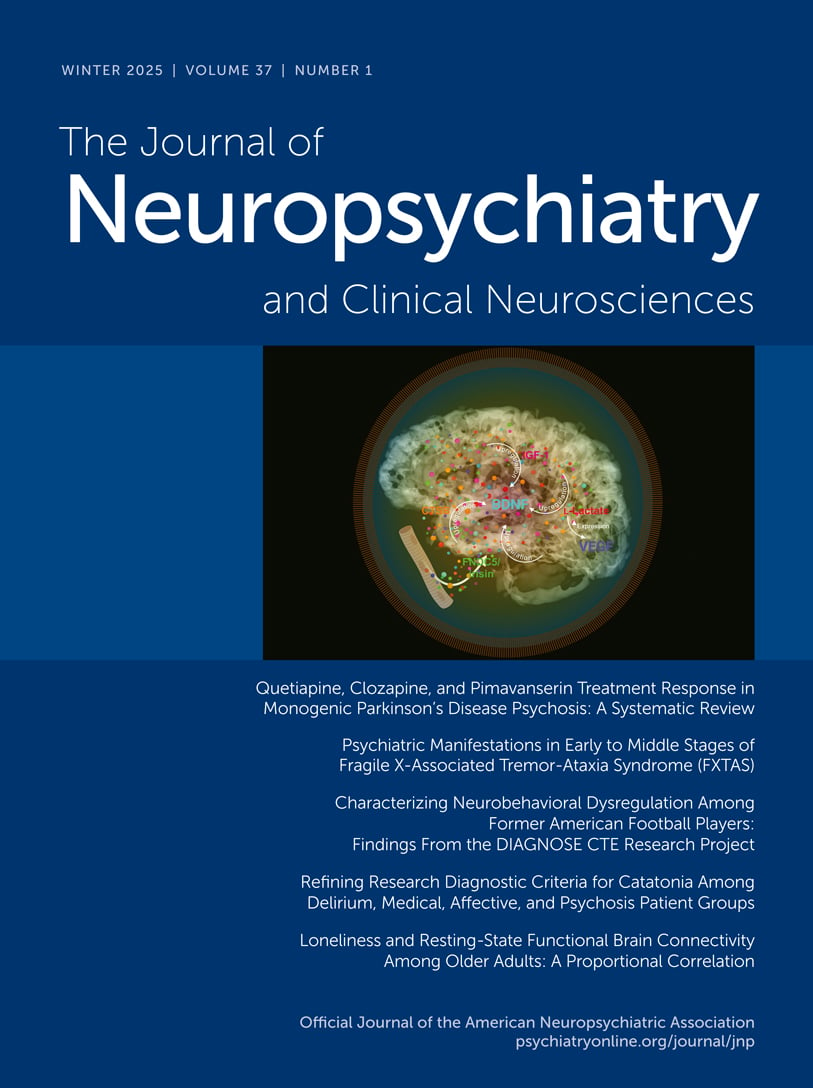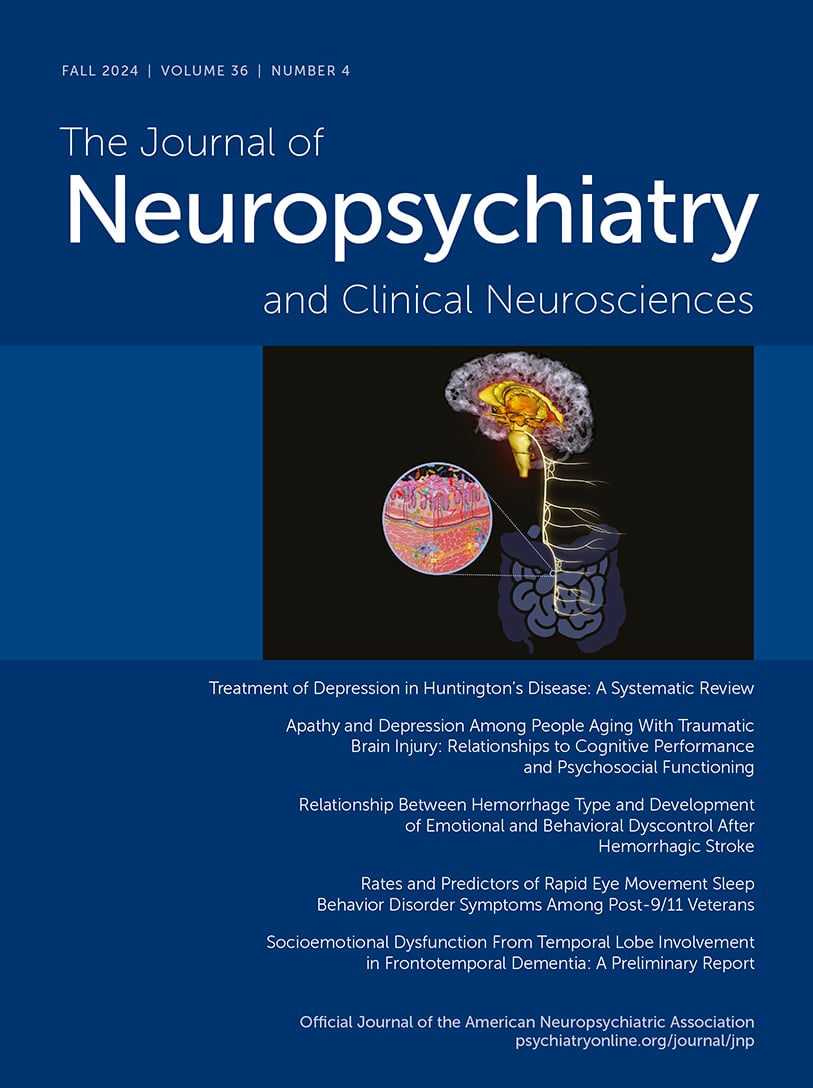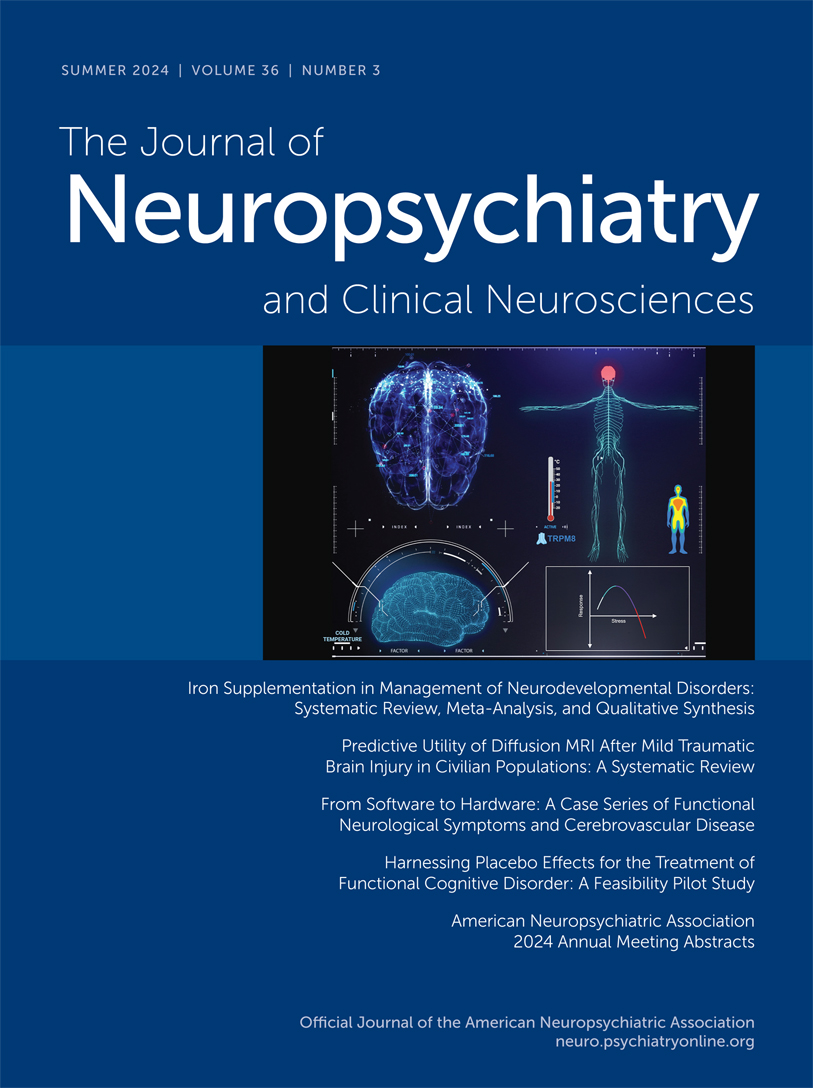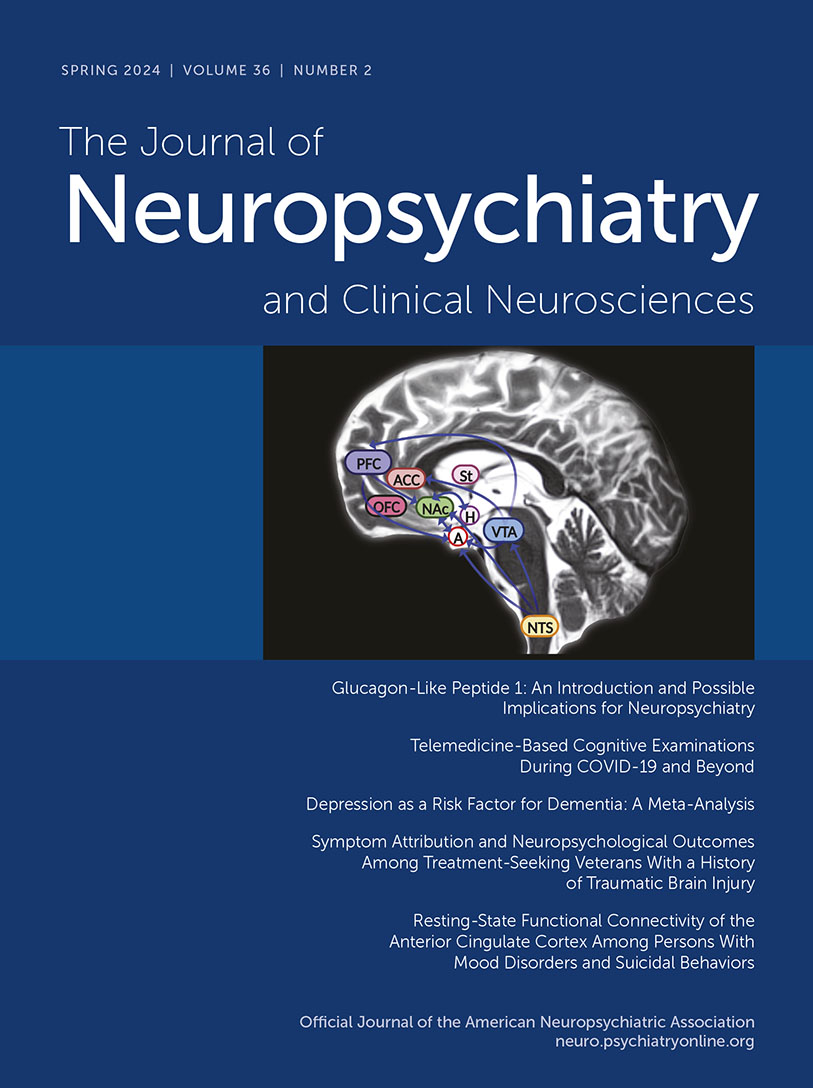The Journal of Neuropsychiatry and Clinical Neurosciences
- Volume 6
- Number 3
- August 1994
Publication date: 01 August 1994
Pages217–228The role of neuropsychological testing in assessment of obsessive- compulsive disorder (OCD) is examined by review of 8 case reports and 14 patient series. Investigators generally agreed on localization of dysfunctional areas (e.g., prefrontal and frontal ...
https://doi.org/10.1176/jnp.6.3.217Publication date: 01 August 1994
Pages229–236The authors review posttraumatic headache (PTH). The most common symptom following head injury, PTH is paradoxically most severe after mild head injury. Although most cases resolve within 6 to 12 months, many patients have protracted or even permanent ...
https://doi.org/10.1176/jnp.6.3.229Publication date: 01 August 1994
Pages237–244A group of 60 patients with spinal cord injury was examined to assess mood disorders during the rehabilitation hospital admission and 6 months of follow-up. During the initial evaluations, 13 patients (22%) had major depression and 5 patients (8%) had ...
https://doi.org/10.1176/jnp.6.3.237Publication date: 01 August 1994
Pages245–249Neuropsychiatric and neuropsychological evaluations were performed in a pilot study of adolescents with DSM-III-R disruptive behavior disorders, including conduct disorder (CD) and attention-deficit hyperactivity disorder (ADHD). The following comparisons ...
https://doi.org/10.1176/jnp.6.3.245Publication date: 01 August 1994
Pages250–256Clozapine, an atypical antipsychotic drug, is widely used in refractory schizophrenia. At New Hampshire Hospital, 7 of the first 35 patients treated (20%) had convulsions. Patterns were tonic-clonic (5), complex partial (2), and myoclonic (3). Seizures ...
https://doi.org/10.1176/jnp.6.3.250Publication date: 01 August 1994
Pages257–260This study compared psychiatric factors and diagnoses in patients with pseudoepileptic seizures and genuine seizures. A semistructured interview identified psychiatric diagnosis and the presence of psychiatric factors associated with conversion phenomena. ...
https://doi.org/10.1176/jnp.6.3.257Publication date: 01 August 1994
Pages261–266The authors administered the Structured Clinic Interview for DSM-III-R (SCID) to 20 outpatients with nonepileptic seizures documented by video- EEG. Fourteen (70%) had one or more non-somatoform DSM-III-R diagnoses. All 14 met criteria for panic disorder. ...
https://doi.org/10.1176/jnp.6.3.261Publication date: 01 August 1994
Pages267–272The neuropsychological performance of three age cohorts of depressed patients (46-59, 60-69, and 70-85) was compared with the performance of age-matched control subjects to determine whether advancing age potentiates the effect of depression on cognition. ...
https://doi.org/10.1176/jnp.6.3.267Publication date: 01 August 1994
Pages273–278Odor discrimination deficits were found in 80% of 20 schizophrenia patients and in none of the 20 age- and sex-matched comparison subjects. Olfactory discrimination was reliably measured in the patients. Twelve patients in this study also had smooth ...
https://doi.org/10.1176/jnp.6.3.273Publication date: 01 August 1994
Pages279–284The authors report dose-response relationships for atropine in their rat model of human delirium. In this model, anticholinergic mechanisms are an important cause and may be a neurochemical final common pathway for diverse etiologies of delirium. Four ...
https://doi.org/10.1176/jnp.6.3.279Publication date: 01 August 1994
Pages285–288A 41-year-old man developed subacute neurotoxicity associated with interleukin-2 and tumor necrosis factor therapy for metastatic renal cell carcinoma. Cognitive deficits revealed on neuropsychological testing and frontal lobe perfusion deficits revealed ...
https://doi.org/10.1176/jnp.6.3.285Article
Past Issues
View Issues Archive
Vol. 37 | No. 1

Vol. 36 | No. 4

Vol. 36 | No. 3
